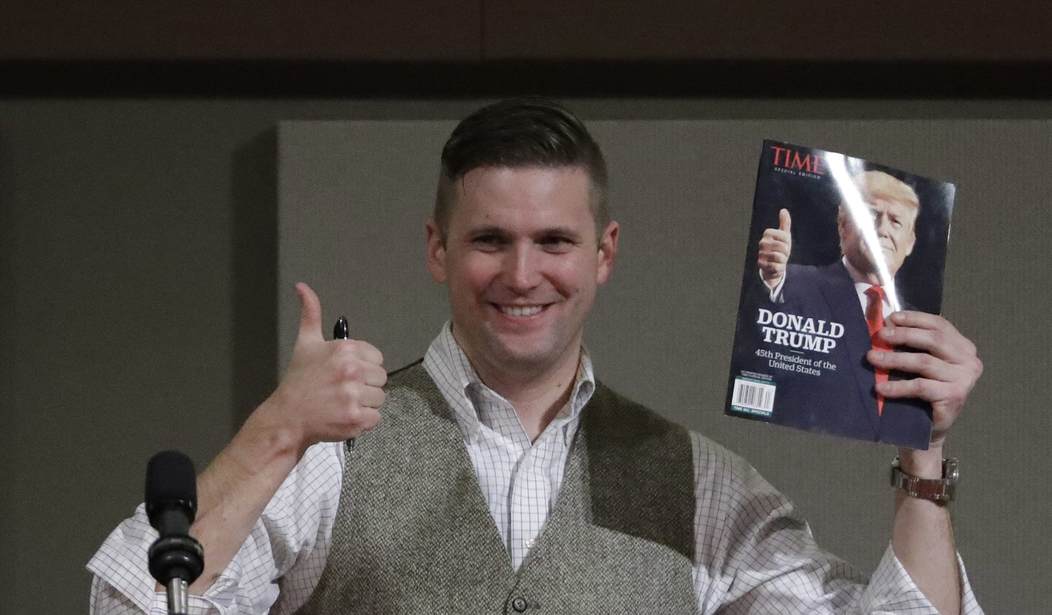WASHINGTON – Tapping into white identity politics in pursuit of political office is not an effective long-term strategy, despite perceptions that it was key to President Trump winning the White House.
That was one of the takeaways scholars from the Cato Institute and Center for American Progress offered Tuesday while releasing a study that examined the underlying values of voter decisions between 2012 and 2016. The study surveyed 8,000 adults, through which analysts identified five different groups of Trump voters. Categories, as labeled by leaders of the study, included “Staunch Conservatives” (31 percent), “Free Marketeers” (25 percent), “American Preservationists” (20 percent), “Anti-Elites” (19 percent) and “Disengaged” (5 percent).
The data suggests that immigration and cultural concerns profoundly shaped the 2016 election. Time-specific events like the rise of ISIS and fears over terrorism, as well as terror attacks in Paris, San Bernardino and Orlando, all added to anxieties over security. According to the data, four of the five groups had positive views about immigration in general, but the majority of the group as a whole was very supportive of the temporary ban on Muslim entry into U.S. that Trump’s campaign pushed.
Emily Ekins, a research fellow at Cato, said Tuesday that the data suggests xenophobia drove some of the concerns about immigration, but there was a multitude anxieties that drove support for Trump’s anti-immigration stances, including economic concerns. Also among them was a sense of lost unity in American culture, as well as fears over violent crimes committed by immigrants. Ekins said the data does not suggest that white identity politics played as big of a role as some would argue.
“I think the analysis shows that (appealing to white identity politics) will most likely not be rewarded because most Trump voters are not about white identity politics,” she said. “They’re not about racism, and trying to engage in those politics will not be rewarded at the ballot box. Yes, there are some out there that do respond to that, but they’re not the majority, and it would be unwise for political office seekers to think that that would be an effective political strategy.”
Rob Griffin, a senior policy analyst at the Center for American Progress, noted a recent Pew Research study that showed about 23 percent of young Republicans, ages 18 to 29, defected from the Republican Party between 2015 and 2017. He regarded this as evidence that white identity politics is not sitting well with the younger generation.
Griffin also said he believes Trump would not have stood a chance had he been running in a more traditional Republican field during the primaries. With 17 candidates in the field, the majority of Republicans voted for someone other than Trump in the early primaries, Ekins said. Sens. Ted Cruz (R-Texas) and Marco Rubio (R-Fla.) split many votes, while Ben Carson and Mike Huckabee divided their own constituencies. But Ekins believes that candidates did not overlap as much with Trump, who emerged as a singular option.
“With that plurality, he kind of kept going on in the polls and as the other Republicans dropped out, he was still standing,” Ekins said.
Ekins and Griffin were asked ultimately whether Trump won the election, or if Hillary Clinton lost, given that they were two of the most disliked candidates to ever run for the executive office. Griffin said that Trump winning and Clinton losing are the same thing, while Ekins disagreed, saying the data suggests that Clinton lost the election more than Trump won. In many states, Trump did not outperform Mitt Romney in 2012, evidence that Clinton underperformed Barack Obama, she said. Many Sen. Bernie Sanders (I-Vt.) supporters did not show up for Clinton, and Wisconsin was one state where this was painfully apparent. Obama earned 1.6 million votes in Wisconsin in 2012, while Clinton in 2016 earned 1.38 million to Trump’s 1.4 million.
Griffin claims that the largest myth surrounding the 2016 election is that trade policy had a major impact on Trump’s victory. The narrative has been that Trump appealed to struggling, blue-collar workers in the Midwest with his rhetoric on the North American Free Trade Agreement, but Griffin said the study did not find a correlation between trade and voter selection.
“That was surprising,” Elkins said, arguing that the immigration narrative explained a much larger swath of voter decisions in the 2016 election. Griffin and Ekins, however, both agreed that there was not one silver-bullet reason that Trump won the election, given the array of motivations from the data.









Join the conversation as a VIP Member